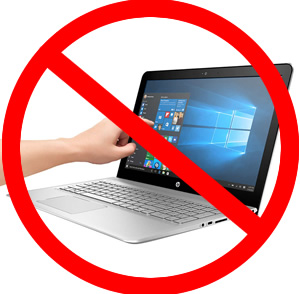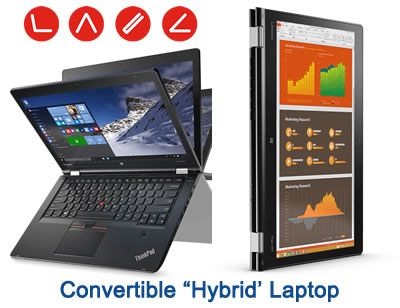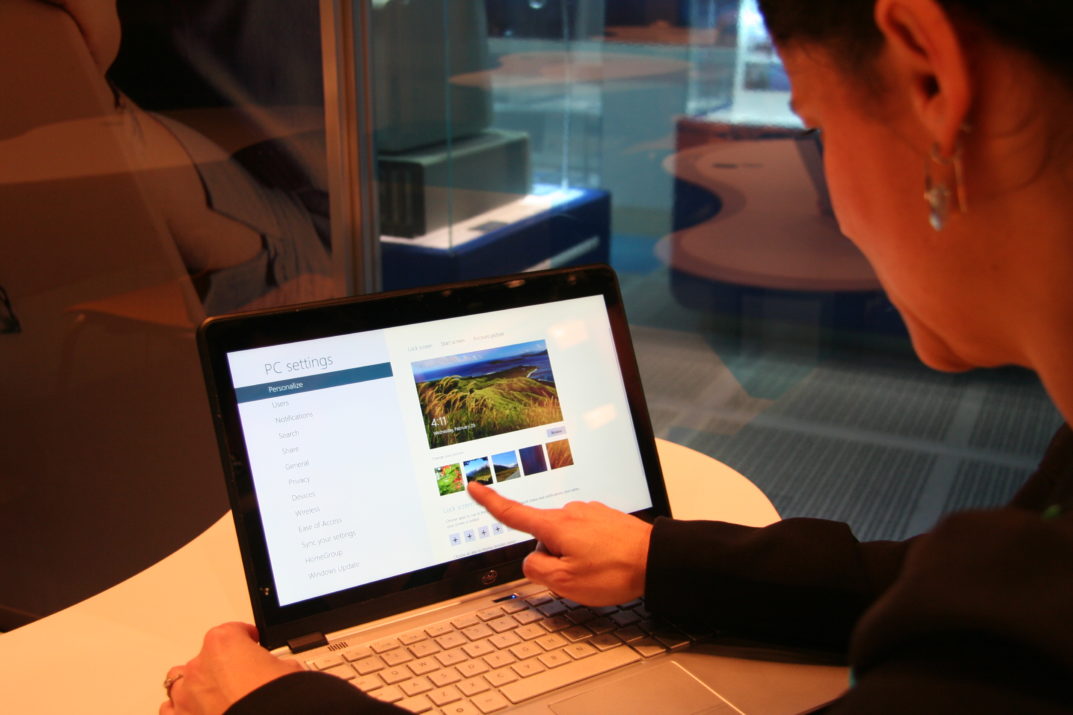
Beware of touch-enabled laptops
When we say touchscreen laptop, we’re not referring to hybrid-convertibles or tablets. We’re talking about a common laptop with a touch-enabled screen. Reluctantly, we have sold a few of these machines to our clients. When we followed-up with them a few weeks later – all of them reported not using the touchscreen at all, or very little.
Usually More Expensive
Business laptops with a touch-enabled screen are typically $50-$200 more expensive. In addition to the sticker price, they often require special ordering which increases the delivery lead-time. Many business laptop models don’t even offer touch-enabled screens, further decreasing your options.
Impacts Battery Life
The always-on touch digitizer draws a significant amount of power. Independent tests have found a battery life delta of 15 to 25 percent. (Source)
Uncomfortable
Touching the screen of a tablet or phone is comfortable, because you’re able to hold the device at a comfortable angle. In opposition, Touch-enabled laptops require a user to reach across the keyboard, which is extremely uncomfortable. “Hybrid” laptops are more portable as they have the ability to fold flat just like a tablet, thus providing a more user-friendly experience.
Thicker & Heavier
A touch-enabled screen must be made thicker to accommodate the touch digitizer. This adds both bulk and weight to the machine.
Sunlight & Viewing Angles

Lenovo’s Yoga hybrid convertible shown
Most touchscreens are made of a glossy material. This glossy material makes it extremely difficult to view the screen while outdoors. Additionally, this type of screen shows reflections, which limits viewing angles.
Lack of Software & Applications
Most applications are not “touch-friendly”. Applications that are not designed to be used with a touch interface can be extremely tedious and frustrating to use.
Conclusion
In our opinion, touch-enabled laptops are a gimmicky fad that’s quickly dying off, much like the “3D TVs” did. That’s not to say tablets aren’t great. We love tablets and the “hybrid” convertibles such as the Microsoft’s SurfaceBook or Lenovo’s YogaBook.
Need help finding the right device to do the job? Drop us a line.

